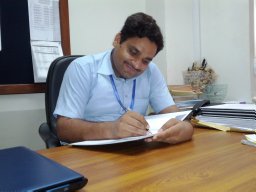My laboratory at Boston Children’s Hospital and Harvard Medical School studies genetic diseases that affect the skeletal system. We became interested in the protein osteocalcin after Gerard Karsenty at Columbia University reported in several papers using knockout mice – mice lacking the genes which produce osteocalcin – that osteocalcin is a bone-derived hormone that affects glucose metabolism, insulin production, male fertility, muscle mass, and cognition. If osteocalcin functions similarly in humans, then osteocalcin becomes an exciting and clinically important protein.
To independently confirm these findings, we created our own osteocalcin knockout mouse strain. We examined glucose metabolism and male fertility in our mice and found none of the effects reported by Karsenty and colleagues; we reported our findings in May 2020. A group in Japan created a third osteocalcin knockout mouse strain which also failed to confirm Karsenty and colleagues’ findings.
In earlier years my laboratory also could not independently confirm other results reported by the Karsenty group: a paper I co-authored in 2011 found no evidence of the Wnt co-receptor LRP5 affecting blood serotonin levels, contrary to what Karsenty’s lab published.
Continue reading When an independent replication isn’t really independent








